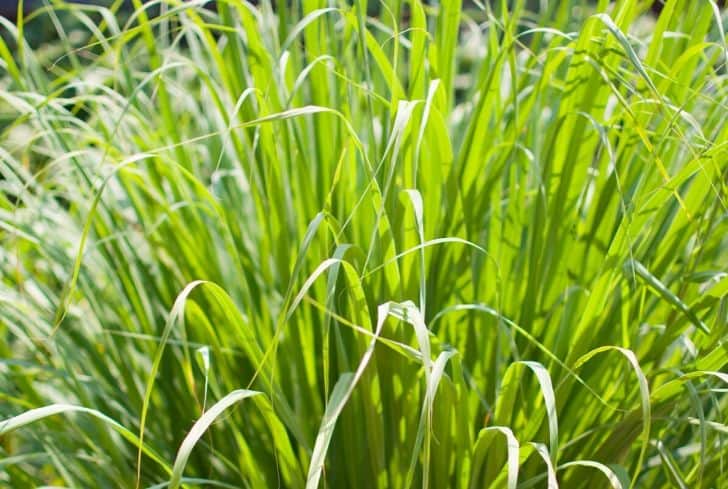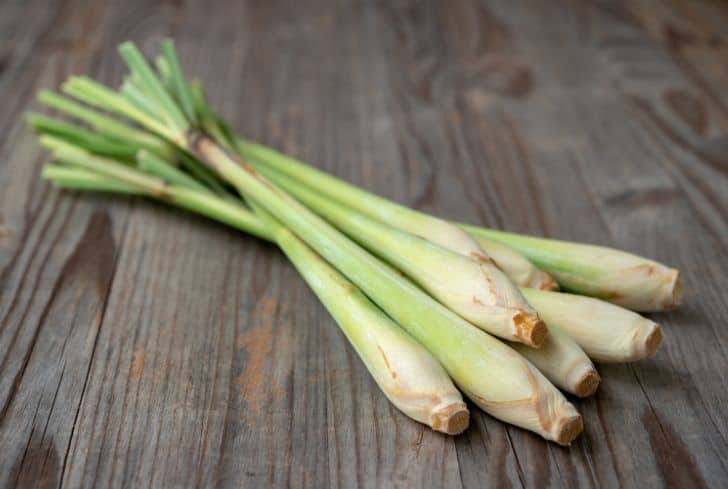Lemograss is a tall herb that is abundantly found in tropical and sub-tropical areas of Asia, Africa, and Australia. China and India accounts to the maximum production of Lemongrass, with an annual production of at least two million pounds. If you’re fond of using Lemongrass in soups and seafood items, you’re probably familiar with what it is and how it looks like.
Given its incredible taste, you might have even considered the possibility of growing it at home. Well, good news! Lemongrass can be grown at home and its role is not limited as an herb. In fact, Lemongrass can always double up as a mosquito repellent, lizard repellent, bee repellent and many other similar roles.
In this article, we will address all your queries about Lemongrass and take a closer look at its insect repelling properties.
Is Lemongrass Mosquito Repellent?
Yes. The Lemongrass plant is known to be an excellent mosquito repellant. According to a study conducted in 2011, around 95% mosquitos from a specific range of species were either killed or completely repelled due to the intense odor of lemongrass oil.
Commonly known as the Citronella oil, the impact of the essential oil from Lemongrass is known to last for around two and a half hours. For some species of mosquitos, it is even more.
Given these proven benefits, Lemongrass has been touted to be one of the best plants for repelling the impact of and from mosquitos. That said, if you are considering the possibility of using lemongrass oil, we would advise you to do so only after consulting your doctor. That is because lemongrass oil is known to be a skin irritant for some individuals.
Citronella, or the essential oil from lemongrass is FDA registered. It is also the most popularly used natural mosquito repellant available abundantly in mosquito lotions, mosquito repellant sprays and candles.
If you want to deter mosquitos with the strong fragrance of lemongrass, consider planting this herb along your porch, walkway, or any other location that is proximity to the seating area.
Plant this grass in a big planter that can be moved from time to time for controlling pests and keeping mosquitos at bay. They work an excellent mosquito filtering screen and have a refreshing odor.
Does Lemongrass Repel Snakes?
Yes, in addition to repelling mosquitos the Lemongrass plant also repels snakes. It is extremely easy to grow, and all you practically need to do is plant it in your homestead.
To repel snakes, you should ideally plant the lemongrass right around your building’s perimeter. If you live in an area prone to overwintering, consider bringing it indoors during the winter season.
For summers, you can plant multiple pots of the grass around the perimeter of your property. This will not just keep snakes at bay but will also prevent the infestation from mosquitos and several kinds of reptiles.
Thanks to its thin and sharp leaves, most reptiles consider staying away from the plant. That is also the reason why you should be extra careful while planting it. This way, you can protect yourself from minor skin cuts.
Overall, the Lemongrass plant is beautiful, effective and rich in medicinal properties. So, if you want a surefire way to keep snakes at bay, this might be your best bet.
Does Lemongrass Repel Lizards?
Lemongrass repels lizards as well. This is especially true for your common household lizards. These herbs often exude a citrusy smell that keeps lizards from infesting your home.
Since this odor is also incredibly refreshing your house smells nice as well. All you need to do is arrange for a bunch of lemongrass blades and place them near kitchen countertops, cabinets, or any other area of your home where lizards tread along. The smell and the sharp blades will deter these reptiles and in a couple of weeks, your home will be completely lizard-free.
Does Lemongrass Repel Bees?
In addition to repelling mosquitos and lizards, Lemongrass also repels bees. Simply plant it around your patio or yard to keep bees out of your property. Lemongrass can be easily grown in your yard- all it needs it moist soil and the warm sun. The citrusy odor will keep your property smelling good all-day round.
Does Lemongrass Repel Rats?
Like several herbs, Lemongrass is rich in essential oils that serve as an excellent rodent-repellant. You probably know that several pests are attracted to the sweet smell of nectar from flowers.
Lemongrass has exactly the opposite impact. Its sharp odor keeps several pests and rodents at bay. While it doesn’t kill them, this is still an excellent plant to prevent rodent or rat infestation in your property.
Note that unlike several over-the-counter rat repellants, Lemongrass is completely natural and therefore chemical-free. To use it for preventing rat infestation, consider planting it near the plants/vegetation that are severely affected by rats.
Alternatively, you can also pot it around your garden’s perimeter. Either way, this will repel insects and prevents rats and other rodents from entering your property.
Does Lemongrass Repel Spiders?
Citronella, the essential oil from Lemongrass is also known for repelling spiders. This oil is rich in acids that render a distinct smell to the grass. Since spiders detest this smell, warding them off is even easier when you plant pots of Lemongrass near your property.
For best results, you can consider planting it near your balcony or near windowpanes. Alternatively, you can also get Lemongrass based products like Citronella candles and light them in your house.
Either way, spiders will be deterred from venturing to your house due to the intense smell and you’ll figure out an effective way to ward them off without having to kill them.
Does Lemongrass Repel Cockroaches?
You’re probably familiar with over-the-counter cockroach repellants. But while they do repel cockroaches, these products are poisonous, toxic, and extremely harmful for kids and pests.
That is why many individuals consider using Lemongrass to deter cockroaches from encroaching their property. As you probably know at this point, Lemongrass exudes a pungent odor that prevents cockroaches from entering your home.
A study conducted on German Cockroaches revealed similar results. To make Lemongrass even more effective, combine it with cedar oil and keep it in areas that are prone to be infested by cockroaches.
Ideally, you should target the nooks and corners of your home and place this solution near cupboards, kitchen cabinets, or under the bed. You can also spray the concoction to drive out the roaches from their favorite hiding spots. Since this solution is completely non-toxic, your kids or pets won’t be under any threat either.
Does Lemongrass Repel Wasps?
Yes, Lemongrass is likely to repel Wasps when it mixed with some specific ingredients. This has been studied and tested by the Journal of Pest Management Science.
According to the study, a concoction made from cloves, geraniums, and Citronella (the essential oil from lemongrass) can effectively repel wasps. To create this solution at home, mix five drops of clove oil, five drops of geranium oil and five drops of Citronella with two tablespoons of water.
Next, add some dish soap into the solution and transfer it to a spray bottle. You can now coat this mix in areas near your home where wasps are more likely to build nests.
This can be under the eaves, in your patio, the ledge, the roof your porch, crevices or anywhere else you deem fit. Since covering every corner of these areas with this concoction may not be as practical, consider targeting those areas where you’ve previously found older nests as most paper wasps are more likely to build their newer nests in similar locations.
You can also double up the impact by potting Lemongrass plants in and around this area. The citrusy smell from the herb will repel wasps and keep them at bay.
Does Lemongrass Repel Ticks?
If you’re tired of tick infestation in your homes and on pets, Lemongrass might just be your solution. Yes, Lemongrass is known to repel ticks and the process of getting rid of ticks with Lemongrass is equally simple.
To make your home-made tick repellant, you will need twenty drops of Lemongrass Oil and around twenty drops of essential oil. Mix both the ingredients with four oz of water.
Now transfer it to a spray bottle and leave it for at least twenty-four hours. This will allow the oils to infuse. Finally, spray the solution your socks, clothes, and household items. Since this isn’t store-bought and is therefore chemical-free, you can also spray it around your pets.
Does Lemongrass Repel Ants?
With more than 20,000 active species, ants are probably one of the most commonly found insects on earth. Given their widespread presence, you’ve probably crossed paths with them at some point in time or the other.
Luckily, you don’t always have to spray chemical-laden bug sprays to keep ants at bay. Yes, Lemongrass can do the trick just as well (or even better).
Ants use a form of pheromone to discover navigation trails. The same trails are used for communicating and hunting for food. You can effectively use Lemongrass based essential oil to disrupt the trail.
Over time, this will disorient and finally deter ants from entering your property. To make a solution, dampen a clean cotton ball/kitchen towel with Lemongrass oil and then wipe it down your kitchen countertop, door and window frames, closets, and any other probable entry or exit points. This will effectively repel ants and keep them from infesting your property.
Does Lemongrass Repel Bugs?
Yes, Lemongrass repels bugs as well. This is especially true for bed bugs. This is usually possible because Lemongrass contains certain properties that completely repel bed bugs due to the acidic scent.
In some instances, it might also kill them by enhancing the acidic level within the insects. You can spray lemongrass solution in the affected parts of your home to completely ward them off. To double up the impact, consider placing potted lemongrass plants in your bedroom.
Bottom Line
Well, as you probably know at this point, Lemongrass has many other roles than just a basic herb. You too can make the most of it, by growing it at home.
All you’ll need is a couple of lemongrass stalks and a glass of water. Once you put the stalks in the glass, the lemongrass will start growing in a week. After that, you can either use it as an herb or follow our guidelines to make the most of its insect repelling properties. Unlike many other herbs, Lemongrass can act as a standalone herb for repelling insects.
Additionally, you can also team it up with other essential oils for a more pronounced, insect-repelling impact. Either way, it is an excellent herb to keep pests at bay.
References:







